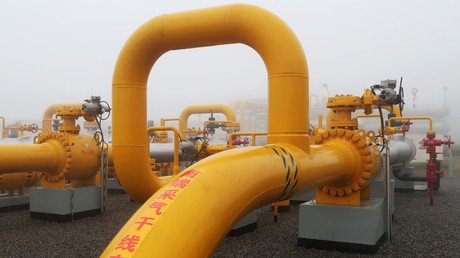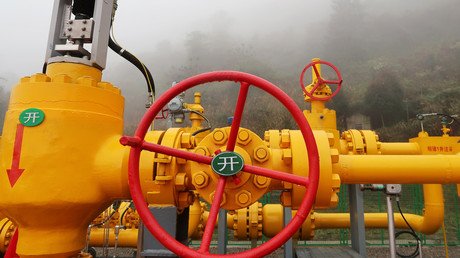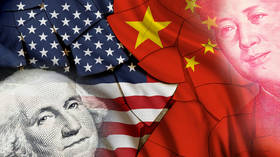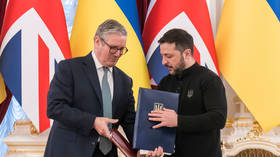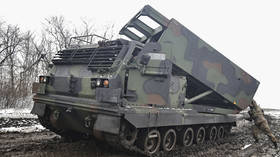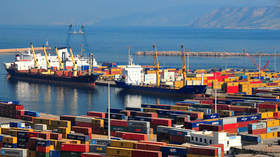This landmark LNG deal will change energy geopolitics forever
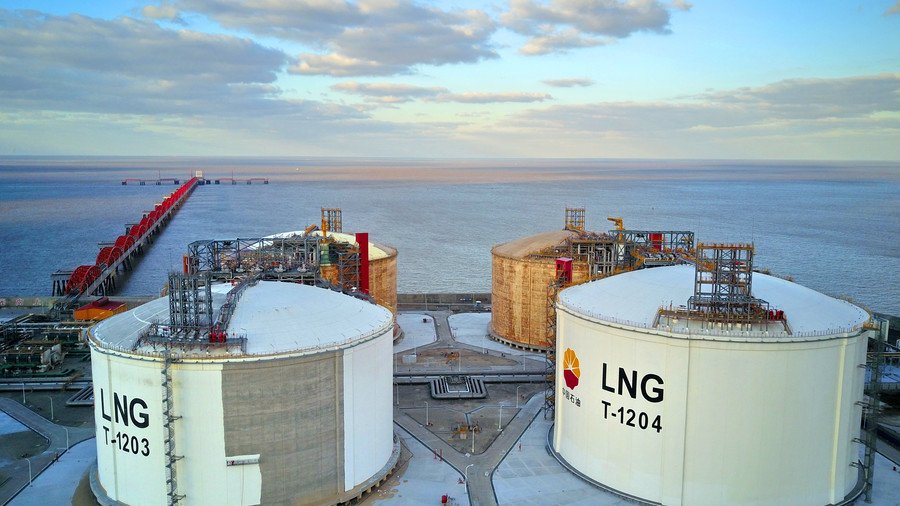
China’s LNG demand grew by a record 8 mt in 2017 and is set to expand by another record 12 mt this year, making up 50 percent of all global LNG demand growth, energy consultancy Wood Mackenzie said in a new report last week.
The country’s spike in LNG usage comes as Beijing pushes forward with its plan to offset coal usage of both industrial and residential end users in an effort to curb rampant air pollution, particularly in its major urban centers. Beijing has mandated that natural gas make up at least 10 percent of its power generation energy mix by 2020, with further earmarks set for 2030.
China’s increased LNG usage is already transforming global markets for the super-cooled fuel and will likely shorten the LNG supply glut by several years from a previously projected time frame of around 2023. The country’s LNG demand is also prompting companies to rethink LNG export project proposals long idled amid the downturn in both global oil and LNG markets from 2015 to 2017.
The final investment decision (FID) reached by project partners in the Canada LNG project in early October is the first major greenfield project to move ahead since 2015. However, more projects are likely to follow given both the rise of LNG demand in Asia, which currently represents 72 percent of global LNG demand. The Wood Mackenzie report added that 2019 could be the largest year for LNG FIDs ever with projects in Russia, Qatar, Mozambique and the US expected to be sanctioned.
However, the growing trade war between Washington and Beijing will also see Chinese companies continue to make a pivot away from US sourced LNG deals, both long-term and spot purchases, to more LNG deals with Russia. Not only will Sino-Russian energy cooperation increase amid President Donald Trump’s hard line over US-China trade differences and his more muscular approach with Beijing over South China Sea differences and increased US support for Taiwan, but these differences will solidify an already growing alliance between Chinese President Xi Jinping and his Russia counterpart Vladimir Putin.
Landmark gas deals
Energy deals will likely follow a similar trajectory to recent agreements between the two sides. In 2014, Russia and China signed a landmark gas deal, with both Xi and Putin in attendance, after a decade of negotiations over import prices and the supply route. Chinese state owned CNPC agreed to purchase 1.3 tcf/y of pipeline gas from Russian state-owned Gazprom for $400 billion over a 30-year period. The now almost completed Power of Siberia pipeline, spanning 4000 km (2500 miles), will connect Russia's eastern Siberian gas fields to northeastern China. CNPC also signed an agreement with Gazprom in November 2014 to import 1.1 bcf/y from western Siberian gas fields.
China is also keen on importing more Russian LNG. Currently, Russia operates two LNG export facilities, including the recently commissioned Yamal LNG project in the Russian Arctic. Yamal LNG effectively doubled Russian LNG output to just over 20 mtpa, making the country the fifth largest LNG exporter in the world. CNPC holds a 20 percent stake in the Yamal project and has a contracted off-take volume of 3 million tons of LNG per year. China’s Silk Fund holds a 9.9 percent stake in the project.
China is interested in becoming a major investor in other Russian LNG projects, including Novatek’s massive 19.8 mtpa Arctic LNG 2 project in northern Siberia which is slated to come on-stream in 2023. Last month, Novatek confirmed that it was considering CNPC as a potential shareholder in the project. Chinese firms will also likely reach agreements with other Russian LNG projects in the future, thereby helping Vladimir Putin’s ambition to compete with Qatar, Australia and the US as the world’s top LNG exporter.
Arctic and military cooperation
Russia and China are also increasing their mutual aims of Arctic development. In 2015, the two sides issued a joint statement committing to work together to turn the Northern Sea Route along the Russian Arctic coast into a competitive commercial sea lane. China's State Council Information Office issued a paper on January 26, 2016 that claimed China as a “near-Arctic state,” adding that the country was interested in encouraging joint efforts to build a joint Silk Polar Road, linking the country with Europe.
Sino-Russian bilateral relations and military collaboration is also deepening as both countries square off against what they see as increased US hegemony, particularly under the Trump administration. Joint Russia-Chinese naval exercises have already been held several times in the East China Sea - an area claimed by both China and Japan that has seen years of military activity by both countries’ naval and air forces.
READ MORE: Energy-hungry China to ramp up imports of Russian natural gas
Additionally, a Russian-Chinese land based military partnership is intensifying. Last month, China participated in the Vostok 2018 war games, Russia’s largest since 1981 during the Soviet era. The games included more than 300,000 troops – including 3,200 from China and a contingent from Mongolia. After the massive war games concluded, the Washington-based Jamestown Foundation noted that Russian and Western militaries are now training to deploy against each other.
A recent paper “A Wary Embrace” by the Lowy Institute for International Policy asked whether Russia and China would “define the rules of global politics” in the 21st century. The paper said that as Western democracies turn increasingly inward under a backlash against globalization, the notion of a rising Sino-Russian partnership has garnered greater attention.
This article was originally published on Oilprice.com

